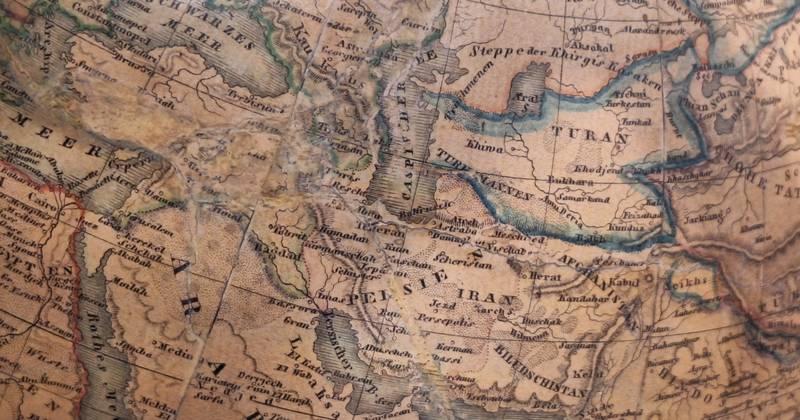Life and Early Formation
Muhammad al-Tahir ibn Muhammad ibn Muhammad al-Tahir al-Tunisi al-Ashur—known simply as Ibn Ashur—was born in Tunis in 1879. His family, originally of Moroccan descent, had migrated from al-Andalus and settled in the city of Sale, with one branch later moving to Tunis. The family became known by the appellation “Ashur,” and he too carried this nisbah throughout his life.
His intellectual formation owed much to the environment in which he was raised. His father, Muhammad ibn Muhammad Tahir, served as the head of the Association of Endowments and was counted among the prominent scholars of his time. On his mother’s side, his grandfather was Muhammad al-Aziz Bu Attur, the prime minister of Tunis. Thus Ibn Ashur grew up in a household where learning and political responsibility were intertwined.
After completing his elementary studies under the supervision of his grandfather, he entered the famed Zaytuna Mosque College in 1892. There he studied with some of the era’s leading scholars, including Shaykh Salih al-Sharif, Shaykh Salim, Umar ibn Ahmad, and Muhammad ibn Najjar. During this period he read such works as al-Kastallani’s Irshadu’s-sari, al-Baydawi’s Anwaru’t-Tanzil, and the theological classic al-Mawaqif.
Ibn Ashur finished his higher studies in 1899. He had also learned French, which enabled him to move with ease between classical scholarship and modern intellectual currents. In 1903, he was appointed to the faculty of Zaytuna University. Despite his young age, he drew attention for his intellectual depth and was promoted to the highest teaching rank in 1905.
Educator and Public Servant
Ibn Ashur was not only a professor but also a thinker and educational reformer. Between 1905 and 1932, he taught for a total of sixteen years—intermittently—at the Sadikiyya College. Among his students were his son Muhammad Fazıl and the renowned Algerian scholar Abdulhamid ibn Badis.
Alongside his teaching, he held various public positions. In 1908 he was appointed to the committee tasked with reforming Tunisia’s national education curriculum. In 1911 he became a member of the High Council of Endowments and the Mixed Land Commission. He took active part in the reform commissions of Zaytuna University (1910, 1924, 1933), all established to modernize and reorganize the institution’s curriculum.
In 1913 he was appointed Maliki judge, a position he held for ten years. Later, in 1924, he became the Maliki mufti of the Sharia Council, and in 1927 he was appointed chief mufti. When the office of Malikī Shaykh al-Islam was created in 1932—replacing the earlier Hanafi post—he became its first holder. That same year, he was appointed rector of Zaytuna University.
Yet his reformist ideas drew opposition, and within a year he was removed from the rectorship. In 1945 he was reappointed and served until 1952. Although he was occasionally criticized for his efforts to modernize the university, he never abandoned his conviction that knowledge and reform belonged together. After Tunisia gained independence in 1956, he was appointed rector for a third term and continued in office until 1960.
Scholarly Persona and Intellectual Vision
Ibn Ashur stood out among the scholars of his era for his mastery of traditional Islamic sciences as well as his grasp of contemporary issues. He excelled especially in Qur’anic exegesis, usul al-fiqh, the objectives of Islamic law (maqasid al-shari‘a), and Arabic linguistics.
He held that the Qur’an must be comprehended anew in every age. For him, the Qur’an does not speak solely to the Arabs of the revelation period; its message addresses humanity in every era. Thus the Qur’an contains meanings and wisdoms appropriate for all times. This approach offered a fresh perspective within the classical tafsir tradition.
Ibn Ashur viewed the Qur’an not simply as a linguistic text but as a guide for the moral and social renewal of humanity. His monumental work, al-Tahrir wa’t-Tanwir, stands as a testament to this vision. In its thirty volumes, he combines linguistic and rhetorical analysis with reflections on the Qur’an’s social, moral, and political dimensions.
One of his most influential contributions was reviving the study of maqasid al-shari‘a. His book Maqasidu’s-Shari‘ati’l-Islamiyya—written nearly six centuries after al-Shatibi—systematically explores the higher aims of Islamic law and is considered one of the most important modern works on the subject.
For Ibn Ashur, Islam is the religion most in harmony with the human disposition (fitra). Its teachings—tawhid, moral virtue, and social order—remain relevant until the end of time. A truly Islamic society rests upon ethical foundations; without the moral cultivation of the individual, social reform is impossible.
Moral Character and Struggle
Ibn Ashur was not only a scholar but also a mujahid and a mujaddid. He was deeply grieved by the colonial oppression faced by Tunisia and the wider Muslim world, and he responded with intellectual and scholarly resistance.
He prioritized issues such as educational reform, the establishment of justice, and the awakening of national consciousness. During his travels throughout Europe and the Islamic world, he sought to understand the causes of Muslim decline and proposed knowledge, morality, and unity as the essential remedies.
Throughout his life he was known for humility, patience, piety, restraint, and steadfastness. In these virtues he became an example not only to his students but to the entire Muslim world.
Works and Legacy
Ibn Ashur authored nearly forty works. The most notable include:
- al-Tahrir wa’t-Tanwir (التحرير والتنوير) — a thirty-volume Qur’anic commentary.
- Maqasidu’s-Shari‘ati’l-Islamiyya (مقاصد الشريعة الإسلامية) — a foundational modern work on the higher objectives of Islamic law.
- Usulu’n-Nizami’l-Ijtima‘i fi’l-Islam (أصول النظام للاجتماع في الإسلام) — a study on the structure of Islamic society.
His writings remain fundamental references in contemporary Islamic thought, Qur’anic exegesis, and legal methodology.
In Summary
Ibn Ashur was an intellectual reformer who embraced renewal without severing his ties to tradition, and a thinker who played a pivotal role in rearticulating Islamic knowledge in the modern era. His intellectual project may be summarized as a Qur’an-centered movement of revival.
His scholarly legacy holds a distinguished place not only in the intellectual history of Tunisia but in that of the entire Islamic world. Today, in discussions of Islamic law, maqasid theory, and modern approaches to tafsir, the imprint of Ibn Ashur continues to be unmistakably felt.
AUTHOR
Abdurrahman Hakan Pakiş



